- Home
- James Phelan
Red Ice Page 18
Red Ice Read online
Page 18
“There,” Bowden said, “the woman he’s with; I want an ID. Keep moving.”
McCorkell stared at the screen as another image was brought up and the screen split up into smaller panels showing a montage of Fox’s movements. Fox in attack mode, grabbing the fallen cop’s MP5, handling it with ease. Another screen, another angle, the prone French cop, pistol up, aimed at Fox and—blam—a woman came into frame; she’d fired in the cop’s direction. Fox hadn’t missed a beat—he’d tracked left, fired a couple of bursts off-screen—another angle showed a guy going down, all Fox’s rounds hitting his torso.
The French cop—on the ground, winged but alive, squirming, out of action.
Fox running to a guy on the ground who was bleeding out fast. The woman came back into frame. Another angle showed the final actions with better clarity. Fox and the armed woman hung around the dying man for about a minute then left.
“There it is—that shot!” Bowden made the tech stop the frame and clear it up: Fox taking something from the dead body.
“What did he take off him?”
The tech zoomed, crisped up the image. A small square object, too blurred and pixellated to know exactly.
“A book, maybe?” a CIA tech suggested.
Bowden turned to face McCorkell. Slight vindication there. He pointed to the freeze-frame of Fox with the shouldered MP5.
“That look like the action of a fucking reporter to you?” Bowden asked with a grin. “He’s in this up to his neck.”
60
PARIS
“You shot a cop,” Fox said as the Peugeot zigzagged through the traffic.
“You’re welcome,” Zoe replied.
They were headed for Zoe’s apartment. Gammaldi and Kate reminded silent in the back.
“He will be fine—get a medal, even,” Zoe said, her eyes darting about the road as she drove. “What? We had no time to stop and explain, right? He would have shot you.”
“Yeah, I know…” Fox said, figuring she was articulating it as much for her own sake as his. He watched the street flash by. He could feel how uncomfortable his friends were in the back seat. “Thank you, Zoe.”
She’d taken her sunglasses off and he could see the strain in her eyes, and what might have been tears. He knew he couldn’t press her about why her plain-clothed officers had been called off before the attack.
No one spoke for the next few minutes.
Fox flicked through Renard’s notebook. It was full of research notes on Babich—a combination of his above- and below-board dealings with French businesses.
One word caught Fox’s eye. Arktika—it had been circled several times and there was a whole section of pages covering it. The first mention was of a 2007 Russian expedition composed of “six explorers employing MIR submersibles that descended to the seabed below the North Pole…” Fox remembered news footage of that, from when they’d planted the flag of Russia and taken water and soil samples for analysis. “… continuing a mission to provide additional evidence related to the Russian claim for the mineral riches of the Arctic Sea Floor.”
Fox couldn’t read more than half the French in there, but understood enough to paint the picture. He kept looking through the notes.
“The expedition aimed to establish that a section of seabed passing through the pole, known as the Lomonosov Ridge, was an extension of Russia’s landmass. Several countries are trying to extend their rights over sections of the Arctic Ocean floor. Both Norway and Denmark are carrying out surveys…”
Fox looked out the window. Zoe was driving sedately now, as if winding down. He zoned out, too, for all of ten seconds, until he remembered Vladimir Putin making a speech on a nuclear icebreaker, urging greater efforts to secure Russia’s ‘strategic, economic, scientific and defence interests’ in the Arctic. It was a throwaway news piece that no one seemed to care about, even those in the few countries that had territorial stakes in the region … Did the Alaska treaty’s secret protocol affect the Arctic? There was no direct answer in Renard’s notebook, but there was one significant page: the transcript that Katya had made and inserted into the diary. Just a few lines in French beside a universal diagram, obviously copied from Stoeckl’s own work. By the time Zoe pulled up outside her apartment, Fox knew exactly where in the Presidential Study the document was hidden. How to get it was another matter …
61
PARIS
Malevich washed his hands, then his face with cold water. The person who looked back at him in the bathroom mirror was a stranger. A week ago he’d been a teacher at the Sorbonne, living a life that he enjoyed. Now it was over. Now he had a new life.
He’d just taken two lives. Cops, no less. His hands had hardly shaken. He hadn’t vomited. Was it getting easier?
No.
There was no time to think about it, that would come later. He would keep forging ahead or all this would be for nothing. He checked his watch. There had been some speed bumps, but he was on schedule. He assumed he wouldn’t be hearing from any of the eight-man team he’d sent to Giverny, seeing as Lachlan Fox was alive. He could have taken a shot at him in the Louvre’s courtyard but the reporter’s bag had been more important. The outcome of the mission. The time …
The diary of Eduard de Stoeckl was heavy in his hands—a chronicle of major achievements, political musings and notes, most of them mundane. He put it on the sink, then took a piss.
There was one part that he’d read carefully after he’d skimmed through the whole diary. A four-page entry covering the Alaska sale. Stoeckl spoke warmly of his friend, Secretary of State William H Seward, and explained how they’d agreed on the deal. There were details about how they’d pressed the case to the Tsar, how they’d argued that the sale of Russian America to the United States would be beneficial strategically, both for the immediate and in the long term for both countries. It would allow the Russian government to concentrate its resources on Eastern Siberia, the caucuses, and at the same time strike a longterm blow to England by giving them a more powerful foe in the Americas. By doing so, the two diplomats reasoned, Russia would avoid any future conflict with the United States. Instead, it would help to solidify a friendship between the nations. It was win-win.
Stoeckl then cited political pressure, from the American politicians and perhaps even President Johnson, not to go through with the $7.2 million deal. The Americans dragged their feet: their Senate ratified the treaty in April of 1867 … The money, however, was delayed by more than a year due to opposition in the House of Representatives. The Tsar wanted action, he wanted answers: he wanted the money paid up or to end the sale—maybe even to sell it to the British. Secretly, Stoeckl and Seward made a deal, insurance for the Russian diplomat should things drag on. They drafted and signed a document and hid it in Paris where Stoeckl saw out his days.
A secret protocol.
It was created simply as insurance. Should Stoeckl be dragged before the Tsar, he would be able to show this document, at any time in the future, and have it enacted. Smart. A good Russian manoeuvre. It was a deal sweetener, a ‘just in case’; there was no doubt about that. In Stoeckl’s time it would have been beneficial for the Russian Empire in terms of commerce and trade. Today … Today it was priceless.
Malevich stood before the mirror and his hands started to shake. He banged them down onto the stainless steel sink, again and again and again until they were numb. He could do this next part, he reminded himself. With any luck, he would not have to harm anyone. This was a static thing, simple: he’d go in, get the document, get out as quickly as possible, and leave this city. Forever.
He buttoned up his overalls and walked out of the bathroom. He was in an old motorbike repair shop, a windowless brick warehouse lit by greasy old neon tubes. Two men from St Petersburg were making some final touches to the van that they’d used earlier in the week for the attack on the embassy. They were dressed as gas company workers, like Malevich.
They signalled, five minutes.
The time ticked over to 11 am.
Right on cue his mobile phone rang.
62
PARIS
Fox took off his watch, ran the cold water on full strength in the basin and rinsed the blood off his hands. They were at Zoe’s place, a small one-bedroom apartment in the second arrondissement, just a few minutes from the Louvre and the Elysée Palace. She had shown them in and then headed for her balcony, shutting the glass doors behind her as she talked on her phone.
Fox soaped up a washcloth, pulled off his shirt and cleaned up. He had Renard’s blood splattered all over—his neck, his face, his forearms … His wrist was caked with blood, mostly his own from this morning. He washed it all off, rinsed his face and hair, and dried off with a towel.
The door opened and Kate came in with some medical gear from Zoe.
“Here,” she said. She sat on the edge of the bath while he stood in front of her, and she applied antiseptic to his stomach, which was badly grazed from dragging himself over the Audi’s broken windscreen. The second car chase of the morning or, technically, was it the third? “This is disgusting—it looks like shingles’ ugly cousin.”
Fox laughed.
“It feels like it—ah, fuck!”
Kate held up a piece of windscreen glass she’d pulled from his side, about the size of a shirt button. She applied a piece of adhesive gauze over the oozing hole.
“Here.” Gammaldi entered, passing him a bottle of beer and a few paracetamol.
“Thanks, mate.” Fox gulped them down with half the beer. “You guys are like my personal medics.”
“You need at least two,” Gammaldi said. “Maybe more, the way your day is turning out.”
Kate wasn’t impressed. “Want me to dress the graze?”
“I think I’ll let it breathe,” Fox said, inspecting the cleaned-up wound. “Thanks.”
Kate shrugged and left the room before he could touch or kiss her.
“Is she okay?”
“She’s all right,” Gammaldi replied. “I think she’s just confused. You should talk to her.”
“Yeah,” Fox followed him out of the bathroom, watching Kate check her iPhone, which was charging in Zoe’s iPod dock. “Soon. Just hold her together while I get this done, yeah?”
“Hey, what else am I gonna do?”
Fox drained his beer, gave the empty to his mate, and clapped him on the shoulder.
Zoe came in from the balcony and moved fast, loading her SIG’s mags from a box of nine-millimetre bullets, which were stashed in an antique music box on her coffee table.
“Imbeciles…” she said, holstering her pistol. She tucked her dishevelled hair behind her ear and looked as fresh as she did just a few hours and a whole lot of grief ago. “The security chief at the palace does not think this is serious—because it is not al-Qaeda or some Algerian vendetta outfit. Told me to file a report via my captain on Monday.”
“Can’t you get your superiors to get things moving?” Gammaldi asked. “Call in the cavalry…”
She shook her head. “No. They are somehow compromised.”
“Zoe’s guys at the Louvre today were called off, ordered away from the scene,” Fox explained. Zoe nodded in agreement.
“Jesus…” Gammaldi bit his lip, looked to Kate.
“If they kill like that in broad daylight,” Zoe said, “then they will not worry about killing us in some deserted hall of the palace.”
“You miss him at the palace, you’ll never get another chan—” Fox stopped, cut himself off; it was clear he and Zoe were on the same wavelength. “You want to go to the palace?”
“Two minutes,” she said, heading to the bathroom.
Before he could answer, Kate touched his arm. “Can I talk to you for a second?” asked Fox, leaing her onto the balcony. She closed the doors behind them.
It was hot and he was feeling the effects of the post-adrenaline rush with the beer chaser.
“Can’t you stop this now?” Kate asked. Her eyes were both sad and angry.
“Kate…” he tried to pull her into a hug, but she put a hand out to stop him.
“Renard is dead, Lachlan. Dead! They’ve already tried to kill us!”
Fox looked down to the honking traffic scooting by below, the people in the streets, the life of the ordinary. There was something soothing about the safety of that kind of life, sure.
“I can’t leave this now,” he said, “especially since Renard…”
“What, so his death can mean something?”
“Please Kate, I don’t expect you to understand but you have to—”
“I don’t have to do anything!” Kate said. “Neither do you, don’t you see that? We can walk away, right now. You’re going to get yourself killed, and I don’t want to bear that! I can’t bear that!”
Fox felt sick. His stomach was churning and it was all because he cared about her. He wanted this to end and he wanted it to mean something at the same time. He wanted to do what was right … what was right for the bigger picture, not just for now, in this moment.
“I have to do this,” Fox said. “I’m sorry.”
Zoe rapped her knuckles on the glass door, signalled it was time to go.
“I don’t deserve this,” Kate said. Her eyes searched his for some final sign he’d give it up for her, but there was none. She went inside, straight through to the open front door where Gammaldi was waiting.
“No one deserves this…” Fox said to himself, quietly.
63
WASHINGTON, DC
The Umbra task force was abuzz for the wrong reasons and there was little McCorkell could do to change the mood. All the main video screens were showing images from the Louvre forecourt. Blood was in the water and these sharks, who’d been hunting since 3 am, wanted an easy feed. Fox’s face—frozen at a dozen angles, gave them that taste. The CIA techs were working on the images, bringing them in closer, clearer—the body on the ground, the woman with Fox—over and over Fox took a small object off the body and exited in a hurry.
“Find out who the woman is before Bowden does,” McCorkell instructed Valerie. She nodded and began looking for a good angle to send through to the databases in Paris. It was an illegal link-in, but it was a grey area—security services used other nations’ CCTV footage in emergency terrorist-attack type situations all the time. Hell, CNN would probably be playing it by now.
McCorkell looked at the main screen down the CIA end—a still frame of Fox looking directly at the camera.
It pulled back to reveal another shooter who had taken a satchel from the fallen man, now identified as a reporter for Le Figaro. There was no image of this shooter’s face, the one that had got away, shooting two cops dead as he fled the scene.
McCorkell looked at the screens nearby—FBI analysts were scrutinising each of the two fallen shooters and the dead reporter from different angles. All up there had been six people involved, as far as they could tell: three on each opposing force—not counting the four uniformed police who became involved. Two of them were dead, one was critical and another stable but with two gunshot wounds. A right fucking mess …
“One dead shooter is Russian military intelligence,” an FBI tech called out. McCorkell went over to the guy’s screen. “GRU black ops, known to have operated in Chechnya 2004 to ’07, where he’d been running Russian-sanctioned death squads.”
“Who’s his friend?”
“There’s no clear facial shot, probably have to wait for the French police to tag him.”
“How about the shooter who got away—the one who took the bag?”
“Same story,” the tech said, “although Paris police are on the scene and they’re pulling in bystanders’ footage; that may bring up something.”
“Right,” McCorkell said, imagining how many of the tourists in that area had cameras—hundreds, thousands even—someone must have something. Hell, it was
probably already on YouTube or their travel blog by now.
They had the guy with the satchel from at least twenty angles—twenty different camera locations—and not one usable face shot. Instead, everything was centred on Fox and his mad scramble outside the Louvre.
Bowden was pacing around, looking from one screen to another, conferring with aides in hushed tones, making battle plans with his Paris Station Chief who, justifiably, was going apeshit.
McCorkell had to find something to shift the focus from Fox onto the unknown shooter who took the satchel.
“What do they have on the streets?” he asked. “The surrounding area? They must have something.”
“We’re working on that…”
McCorkell rubbed at the tension in his temples as Valerie approached him.
“What?”
“Bowden,” she said. “He’s coming over for a show and tell.”
“That’ll solve everyone’s problems.”
“Sir…” another FBI tech said, his voice urgent. He’d found something.
McCorkell turned to him.
“It’s someone’s uploaded footage,” the tech said. “You can just make out…”
“Enhance it,” McCorkell leaned over the guy’s shoulder. A clear image filled the screen. And there he was. The shooter with the satchel, running out of the Louvre forecourt, fast. It was a decent enough profile, although still no good front-on facial.
“That’s our guy,” Valerie said. “That’s our guy.”
64
ELYSÉE PALACE, PARIS
Fox stood behind Zoe, waiting for the security checkpoint at the Elysée Palace to clear them. In his mind it played out like one of those scenes in Hot Fuzz or Shaun of the Dead: all in quick-cut flashes of everything going swell, back home in time for a cold beer and a spot of telly. Kate and Gammaldi were in the car a block away, ready to roll in at a moment’s notice. Fox would go with Zoe and get the document, and while she would stay and lie in wait for the murderer to show, the rest of them would head straight to the airport for the first flight back to the US. Sipping beers over the Atlantic in no time. Gammaldi, to his credit—and Fox knew he owed him yet again—was doing his best to keep Kate from heading back without him.

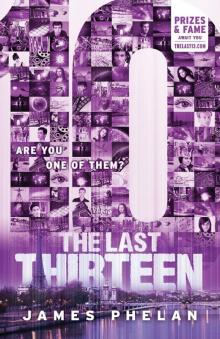 10
10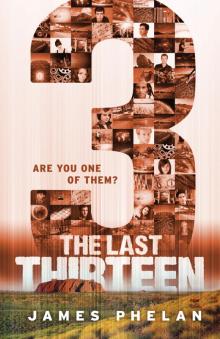 3
3 Survivor
Survivor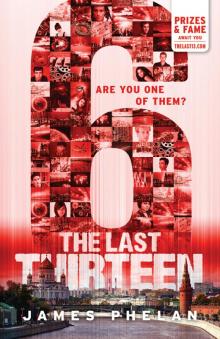 6
6 The Hunted
The Hunted Quarantine
Quarantine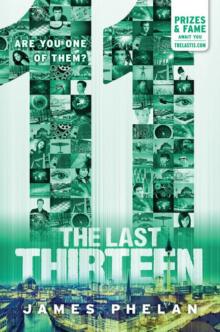 11
11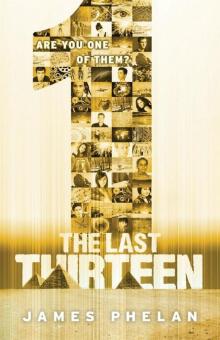 The Last Thirteen - 1
The Last Thirteen - 1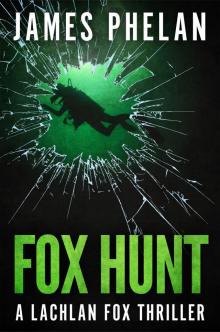 Fox Hunt
Fox Hunt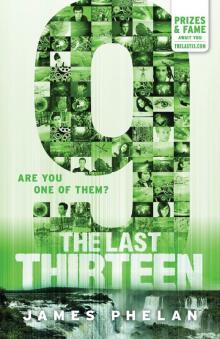 9
9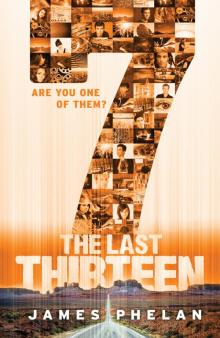 7
7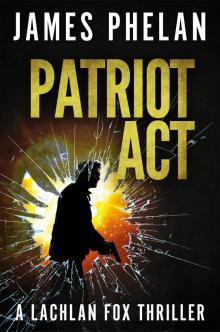 Patriot Act
Patriot Act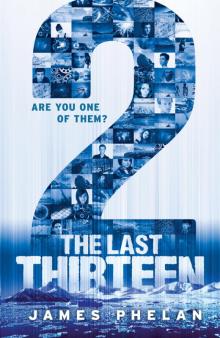 2
2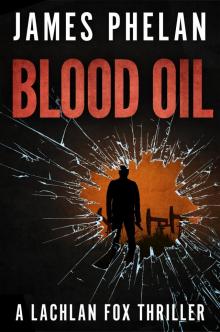 Blood Oil
Blood Oil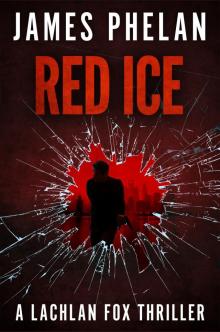 Red Ice
Red Ice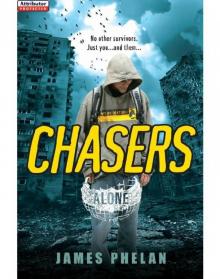 Chasers
Chasers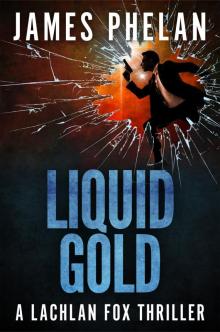 Liquid Gold
Liquid Gold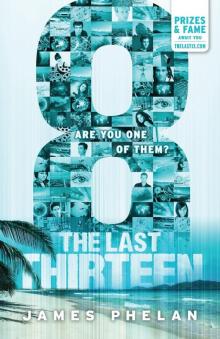 8
8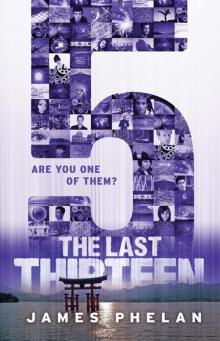 5
5 The Spy
The Spy Kill Switch
Kill Switch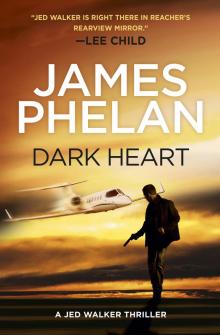 Dark Heart
Dark Heart